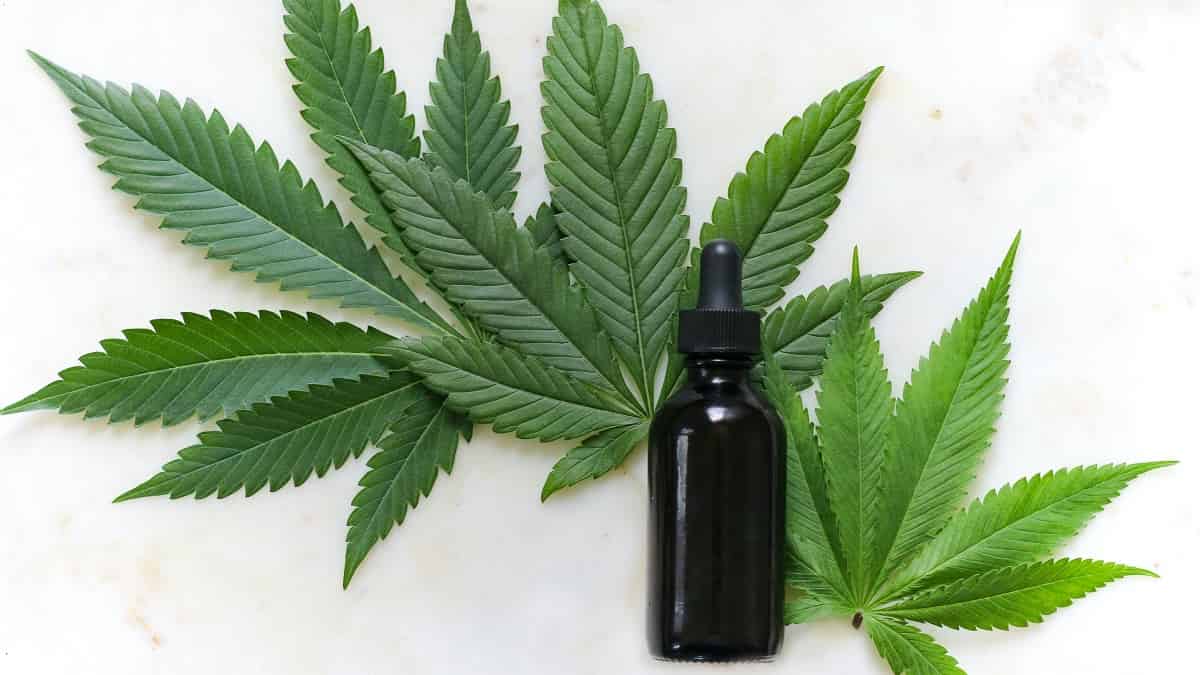CBD oil and sleep: CBD oil has been gaining popularity in recent years for its potential therapeutic benefits, particularly in promoting sleep. In this article, we will explore the science behind CBD oil and sleep, and how to use it effectively.
Table of Contents
The Science Behind CBD Oil and Sleep
CBD oil and sleep: CBD (cannabidiol) is a compound found in the hemp plant. Unlike its cousin THC (tetrahydrocannabinol), CBD does not produce the psychoactive effects commonly associated with marijuana. Instead, CBD has been shown to have a variety of potential health benefits, including its potential to improve sleep.
CBD interacts with the body’s endocannabinoid system, which plays a key role in regulating various physiological processes, including sleep. Specifically, CBD has been shown to interact with receptors in the brain that are involved in the sleep-wake cycle, such as the serotonin 5-HT1A receptor. This interaction may help promote relaxation and reduce feelings of anxiety, both of which can interfere with sleep.
In addition to its effects on the endocannabinoid system, CBD may also interact with other neurotransmitters and receptors involved in sleep regulation, such as GABA (gamma-aminobutyric acid) and adenosine. GABA is a neurotransmitter that helps to reduce activity in the brain, promoting relaxation and sleep. Adenosine is a molecule that builds up in the brain throughout the day and promotes sleepiness at night.
Research on CBD Oil and Sleep
While research on the effects of CBD on sleep is still in its early stages, there is growing evidence to suggest that it may be beneficial for improving sleep quality and duration. In a 2019 study published in The Permanente Journal, 72 adults with anxiety and sleep disorders were given CBD for anxiety and sleep. After the first month, anxiety scores decreased in 79% of the participants and sleep scores improved in 66%. This study suggests that CBD may be a promising treatment option for both anxiety and sleep disorders.
In another study published in the Journal of Clinical Psychology in 2019, 103 participants with anxiety or poor sleep were given CBD. Over the course of three months, participants reported significant improvements in anxiety and sleep scores, as well as overall quality of life.
It’s important to note that while these studies are promising, more research is needed to fully understand the effects of CBD on sleep and to determine optimal dosages and methods of administration.
How to Use CBD Oil for Sleep
If you are interested in using CBD oil to promote better sleep, there are several methods of consumption to consider. CBD oil can be taken sublingually, which involves placing a few drops of oil under the tongue and holding it there for 30-60 seconds before swallowing. This method is believed to be one of the most effective ways of consuming CBD, as it allows for rapid absorption into the bloodstream.
Alternatively, CBD oil can be added to food or beverages, such as smoothies or tea. However, it is important to note that the effects of CBD may take longer to manifest when consumed in this manner, as it must pass through the digestive system before entering the bloodstream.
When using CBD oil for sleep, it’s important to start with a low dose and gradually increase until the desired effects are achieved. It’s also important to use CBD oil in conjunction with other healthy sleep habits, such as maintaining a regular sleep schedule, avoiding caffeine and alcohol before bedtime, and creating a comfortable sleep environment.

The Benefits of CBD Oil for Sleep
CBD oil has been found to have several benefits that may aid in promoting restful sleep. For instance, research suggests that CBD may help alleviate symptoms of anxiety and depression, which are commonly associated with sleep disturbances. Additionally, CBD has been found to have pain-relieving properties, which may also help improve sleep quality for those experiencing chronic pain.
Moreover, CBD may also promote relaxation by interacting with the body’s endocannabinoid system, which is responsible for regulating several physiological processes, including sleep. The endocannabinoid system consists of receptors located throughout the body that are activated by endocannabinoids, which are molecules produced naturally by the body.
CBD is believed to interact with these receptors, potentially promoting relaxation and reducing feelings of anxiety or stress that can make it difficult to fall asleep. Furthermore, CBD has been found to have a positive effect on REM sleep, which is the stage of sleep where most dreams occur.
The Science Behind CBD Oil and Sleep: Conclusion
In conclusion, CBD oil has emerged as a promising natural remedy for sleep disturbances, with several studies suggesting that it may have beneficial effects on sleep quality and duration. While more research is needed to fully understand the mechanisms behind CBD’s effects on sleep, the available evidence suggests that it may help promote relaxation, alleviate symptoms of anxiety and depression, and improve REM sleep.
If you are interested in trying CBD oil for sleep, be sure to consult with a healthcare professional to determine if it is safe for you to do so. Additionally, be sure to choose a high-quality CBD oil product from a reputable manufacturer to ensure that you are getting a safe and effective product. With proper use and dosage, CBD oil may be an effective tool for improving your sleep and overall well-being.


[…] research is needed to fully understand its benefits and risks. If you’re considering using CBD oil, it’s important to purchase a high-quality product from a reputable source. Dispensaries, […]
[…] regulations. By following these tips, you can ensure that you’re getting the best possible CBD product for your […]
[…] safe to use. If you are concerned about failing a drug test, it’s important to choose a CBD oil that is labeled as THC-free like Broad Spectrum CBD or CBD isolate. Additionally, it’s […]
[…] you’re new to CBD, it’s important to start with a low dose and gradually increase your dosage until you find […]